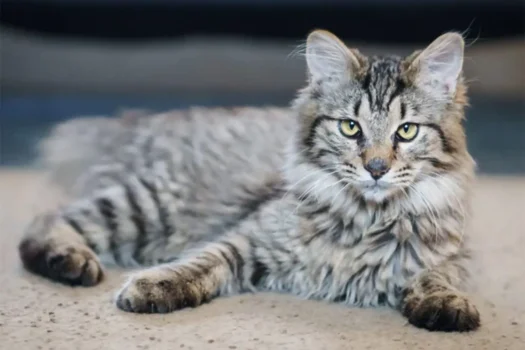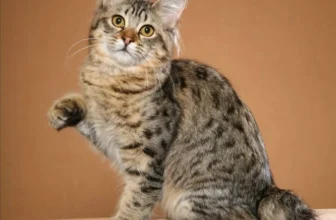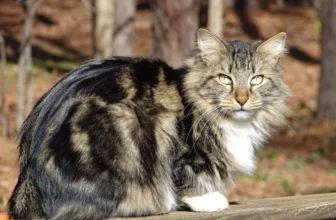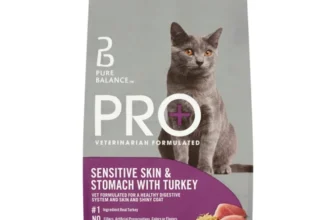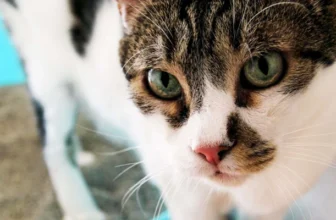As a cat owner, you probably love to spoil your furry friend with treats and extra meals. However, did you know that overindulgence can lead to obesity in American Bobtail cats? Obesity is becoming a common health issue among cats, and it can lead to various health problems. In this article, we’ll explore the connection between obesity and health issues in American Bobtail cats, the importance of regular vet check-ups, and tips to manage obesity in your American Bobtail cat. So let’s dive in and learn how to keep our feline friends healthy and happy!
The Connection between Obesity and Health Issues in American Bobtail Cats
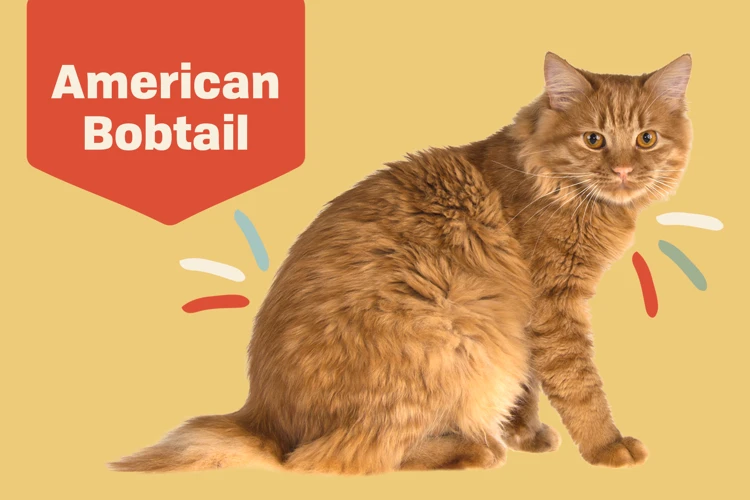
It’s no secret that obesity can have a profound impact on the health of American Bobtail cats. Unfortunately, many cat owners fail to recognize the connection between obesity and health issues, which can lead to serious consequences down the road. In this section, we’ll explore the negative effects of obesity on your American Bobtail’s health and highlight the importance of regular vet check-ups to manage these health risks. By the end of this section, you’ll have a deeper understanding of the potential health risks associated with obesity and what you can do to keep your furry friend healthy and happy. To learn more about identifying and preventing obesity in American Bobtail cats, check out our article on obesity in American Bobtail cats.
How Obesity Affects Your Cat’s Health
Being obese can have a significant impact on the overall health of American Bobtail cats. Below are some of the ways that obesity can affect your feline friend:
- Joint problems: Overweight American Bobtail cats put extra pressure on their joints, which can lead to arthritis and other joint problems. These joint problems can cause your cat to become immobile, leading to a sedentary lifestyle, which can exacerbate the weight problem. Reducing obesity in American Bobtail cats is key to preventing joint problems.
- Diabetes: Obese American Bobtail cats are at higher risk for developing diabetes. Diabetes is a serious condition that can cause a wide range of health problems, including blindness, kidney failure, and nerve damage.
- Decreased lifespan: Being overweight can shorten your Bobtail cat’s lifespan. Obese cats are more likely to develop health problems that may lead to a shorter lifespan than their healthy weight counterparts.
- Heart disease: Just like in humans, being overweight can put extra strain on your cat’s heart. This can lead to heart disease, which can be life-threatening.
It’s important to take note of these health risks that come with obesity in American Bobtail cats. By preventing obesity and managing your cat’s weight, you can reduce the risk of these health issues and give your cat the best chance at a long and healthy life.
Health Issues Likely to Affect Obese American Bobtail Cats
Obesity is a severe health concern for American Bobtail cats as it can cause several health issues. Obese American Bobtail cats are at an increased risk for developing diabetes, arthritis, heart disease, urinary tract infections, and respiratory problems. Diabetes is a common health issue among overweight cats, and it occurs when the cat’s body is unable to produce enough insulin or is unable to utilize insulin correctly. Arthritis also often affects obese cats, and it causes inflammation in the joints, leading to pain and discomfort. Obese cats are also more likely to experience heart disease, including hypertensive heart disease and heart failure.
Urinary tract infections are another common health issue that obese American Bobtail cats are more likely to experience. These infections occur when bacteria enter the urinary tract, causing discomfort and pain during urination. Respiratory problems are more common in overweight cats, and they can occur due to respiratory infections or asthma.
It is crucial to understand that these health issues can be life-threatening if untreated. To avoid these health risks, it is always a good idea to keep your American Bobtail cat at a healthy weight and to get them regular vet check-ups. In the next section, we will discuss how regular vet check-ups can help manage obesity and the associated health issues in American Bobtail cats.
Click here to read more about the health risks of obesity in American Bobtail cats.
The Role of Regular Vet Check-ups in Managing Obesity and Health Issues in American Bobtail Cats
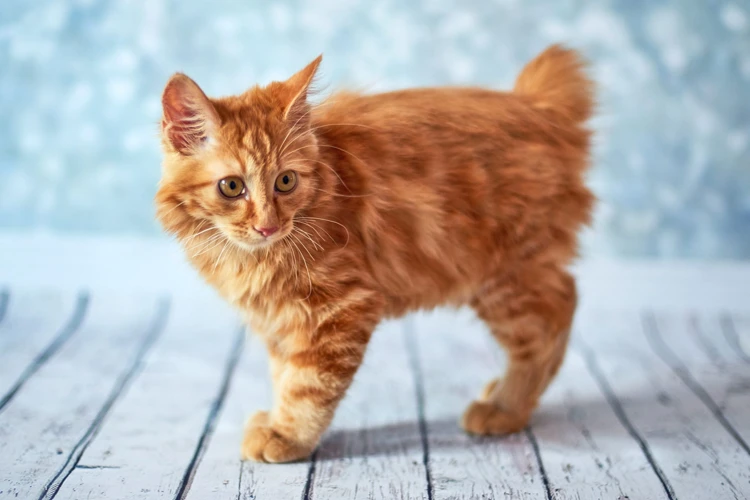
Regular vet check-ups play a crucial role in managing the health of your American Bobtail cat. As we have discussed earlier, obesity can lead to various health issues, and it’s essential to keep a check on your pet’s health to avoid any potential risks. It’s not always easy to detect health problems on your own, and that’s where regular vet check-ups come in handy. An expert vet can evaluate your pet’s health and provide you with tips, information, and guidance on how to manage your cat’s weight and overall health effectively. During these appointments, the vet can also detect any underlying health issues that your cat might be experiencing, which can then be treated promptly. So, let’s dive deeper into how regular vet check-ups can be beneficial in managing obesity and health issues in American Bobtail cats. But before that, let’s take a look at how these health issues affect your cat. If you want to know about the signs of obesity in American Bobtail cats, you can check out our previous article here.
How Regular Check-ups Help in Managing Obesity and Health Issues
Regular check-ups are essential in managing obesity and other health issues in American Bobtail Cats. During the check-up, the vet will assess your cat’s overall health and diagnose any health issues that may be present. This is important in managing obesity because it allows the vet to track your cat’s weight and determine whether they are making progress in losing weight. The vet may also recommend dietary changes or adjustments to your cat’s exercise routine to help manage their weight.
In addition to weight management, regular check-ups can also help detect any potential health issues before they become more severe. Early detection of health concerns can help mitigate the impact of the issue and treat it more efficiently. This is especially true for obese American Bobtail Cats, as they are more susceptible to various health conditions like diabetes, heart diseases, and arthritis.
Regular check-ups can serve as a routine preventive measure for overweight cats. The vet will check your cat’s vital signs, run blood tests, and perform a physical exam to ensure they are not developing any health issues. Scheduling regular check-ups can help you stay on top of your cat’s overall well-being and prevent any potential health risks from worsening.
Regular check-ups are crucial in managing obesity and other health issues in American Bobtail Cats. They help keep track of your cat’s weight and well-being, detect any potential health concerns, and allow for early intervention and proper treatment before things get worse. As such, make sure to schedule your cat’s check-ups with a vet who can provide the best care and guidance in weight management and general health concerns.
To keep your cat’s weight under control, read our article on tips to reduce obesity in American Bobtail Cats or exercise tips for overweight Bobtail Cats.
What Happens During a Vet Check-up for Your American Bobtail Cat?
During a vet check-up, your American Bobtail cat will undergo a thorough examination to evaluate their overall health and identify any issues. Here’s what you can expect to happen during a vet check-up for your feline friend:
| Step | Description |
|---|---|
| 1 | Weight and Body Condition Assessment: The vet will weigh your cat and assess their body condition score. This will help determine if your cat is at a healthy weight, overweight, or obese. |
| 2 | Vaccination Review: Your cat’s vaccination record will be reviewed to ensure they are up-to-date on all necessary vaccines. |
| 3 | Physical Exam: The vet will perform a physical exam, including checking your cat’s eyes, ears, mouth, teeth, and heart. They may also palpate your cat’s abdomen to check for abnormalities. |
| 4 | Blood and Urine Tests: The vet may recommend blood and urine tests to check for underlying health conditions, such as kidney disease or diabetes. |
| 5 | Deworming and Parasite Prevention: The vet may recommend deworming and prescribe flea and tick prevention medication to keep your cat healthy and parasite-free. |
| 6 | Nutrition and Diet Counseling: The vet may offer advice on a healthy diet and feeding schedule for your American Bobtail cat, especially if they need to lose weight. |
| 7 | Behavioral Assessment: The vet may ask about your cat’s behavior and recommend solutions if needed, such as litter box training or scratching post placement. |
It’s important to schedule regular check-ups for your American Bobtail cat, especially if they are overweight or prone to health issues. By staying proactive about your cat’s health, you can help them live a long, happy life.
How to Prepare for Your Cat’s Vet Check-up
Preparing for your cat’s regular vet check-up is essential to ensure that the vet can conduct a thorough examination and provide the appropriate treatment. Here are some steps you can take to prepare for your cat’s vet appointment:
| Action | Description |
|---|---|
| Update your cat’s medical history | Be sure to provide the vet with a complete medical history of your cat, including previous medical conditions, surgeries, and vaccinations. This will enable the vet to have a thorough understanding of your cat’s overall health and medical needs. |
| Bring a urine sample | The vet may require a urine sample to check for any urinary tract infections or other conditions. Collecting a urine sample beforehand can save time and make the check-up more efficient. Ask your vet for instructions on how to collect a urine sample. |
| Bring a stool sample | The vet may require a stool sample to check for any parasites or infections. Collecting a stool sample beforehand can save time and make the check-up more efficient. Ask your vet for instructions on how to collect a stool sample. |
| Fast your cat if necessary | If your cat requires any specialized tests, such as a blood glucose test, the vet may advise you to fast your cat for a certain period before the appointment. Follow your vet’s instructions carefully. |
| Bring your cat’s favorite toy or blanket | Bringing along something familiar and comforting can help keep your cat calm and relaxed during the check-up. This can help make the experience less stressful for your cat and the vet. |
| Ask questions | Don’t hesitate to ask questions or bring up any concerns you may have during the check-up. The vet can provide valuable information and advice on how to help your cat maintain good health. |
By following these steps, you can ensure that your cat’s vet check-up is a smooth and stress-free experience that leaves no stone unturned in ensuring that your cat maintains good health.
Tips to Manage Obesity in American Bobtail Cats
If you notice that your American Bobtail cat is obese, it’s important to take action to help them lose weight and improve their overall health. While regular vet check-ups can help, there are also some tips you can follow at home to manage your cat’s weight. Here are some useful strategies to help manage obesity in American Bobtail cats that you can implement to keep your feline friend healthy and happy.
Feeding Tips
Feeding an obese American Bobtail cat can be a challenging task. However, with a little effort and knowledge, feeding your cat can become a healthy and enjoyable habit. Here are some practical feeding tips to help manage your cat’s weight:
- Control Portion Sizes: Overfeeding is one of the most common causes of obesity in cats. It’s essential to control the portion sizes you feed your cat. Discuss with your veterinarian the ideal amount of food your cat needs based on age, weight, and activity level. Once you have determined the right amount, use a measuring cup to avoid overfeeding your cat.
- Avoid Free Feeding: Free feeding is the practice of leaving food out all day for your cat to eat at its discretion. This habit can lead to overeating and eventual obesity. Instead, serve timed meals based on the appropriate portion sizes discussed with your vet.
- Choose High-Quality Food: Feeding your cat with high-quality food can help it consume fewer calories while still fulfilling the essential nutrient needs. Look for protein-rich, low-calorie foods that are specifically formulated to help manage your cat’s weight. Avoid feeding your cat table scraps or human food, which can be high in calories, fat, and sugar.
- Slow Down Eating: Some cats eat too quickly, leading to overeating. You can slow your cat’s eating by offering it smaller food portions, using food puzzles or toys for feeding, or placing a large ball in the feeding bowl.
- Offer Fresh Water: Always provide fresh water that is easily accessible to your cat. Dehydration can lead to overeating, so having clean water available can help control your cat’s food consumption.
It’s important to note that implementing these feeding tips might not be enough to manage your cat’s obesity. Your cat may require a specialized diet, and its food intake may need to be monitored closely. Consult with your veterinarian to ensure you are taking the appropriate steps to manage your cat’s obesity.
Exercise Tips
It’s essential to incorporate regular exercise into your American Bobtail cat’s routine to help manage their obesity. However, it’s also important to note that these exercise tips must be applied gradually and progressively to prevent any injury or exhaustion in your cat. Here are some exercise tips for obese American Bobtail cats:
| Exercise Tips | Description |
|---|---|
| Encourage Playtime | Allow your cat to play with interactive toys such as feather wands, laser pointers, or even small balls. This will encourage them to move around and burn some calories. You can also play hide-and-seek games to keep them active and engaged. |
| Provide Climbing Opportunities | American Bobtail cats love to climb. You can provide them with cat trees, shelves, or even a simple cardboard box, this will also prevent boredom, providing them with mental stimulation and allow them to stretch and exercise their muscles. |
| Walking on a Leash | If your cat is calm and comfortable with a leash, take them for walks. But initially, start with short walks and increase them gradually. Walking on a leash also provides a change of scenery that promotes mental stimulation for your cat. |
| Arrange Obstacle Courses | Creating an obstacle course to jump over, run through or weave around the objects could also be beneficial for your American Bobtail cat. Arrange boxes, open paper bags or tunnels, this will encourage them to move towards a goal, providing them a bit of mental and physically fun activity. |
Remember that before starting an exercise plan or routine, you should always consult your vet first. They can provide you with more exercise tips to help your American Bobtail cat lose weight in a safe, effective and fun way.
Behavioral Tips
When it comes to managing obesity in American Bobtail cats, behavioral changes can also play a major role. Here are some behavioral tips you can try:
- Provide mental stimulation: Often, cats will overeat out of boredom. Make sure your cat has plenty of toys to play with, and consider introducing puzzle feeders to add some mental stimulation to mealtime.
- Set mealtime routines: Consistency in mealtimes can help your cat develop a consistent appetite, making it easier to maintain their weight. Don’t leave food out all day – instead, establish regular meal times and stick to them!
- Monitor your cat’s behavior: Keep an eye on your cat’s behavior to get a sense of whether they’re doing well or struggling. Try keeping a behavior journal to track their eating and exercise habits, and use it to identify any changes that could indicate your cat needs additional support.
- Keep your cat active: While exercise is an important aspect of obesity management, it can be especially challenging for cats who are used to living a sedentary lifestyle. Encourage your cat to play and get moving with interactive toys and games.
- Be patient: Managing obesity and changing your cat’s behavior takes time and patience. Don’t expect overnight changes, and instead focus on making small, manageable adjustments that will help your cat live a healthier life over time.
By following these behavioral tips, you can help your American Bobtail cat develop healthier eating and exercise habits, which will ultimately lead to a healthier, happier furry friend!
Supplement Tips
As a supplement to healthy feeding and regular exercise, certain supplements can help manage obesity in American Bobtail cats. Before starting your cat on any supplements, it is important to consult with your veterinarian to ensure they are safe and appropriate for your cat’s individual needs. Here are some supplement tips to consider:
| Supplement | Benefits | Administration |
|---|---|---|
| Omega-3 Fatty Acids | Can help reduce inflammation and improve joint health, which can be particularly beneficial for obese cats who may experience joint pain. | Can be given in the form of fish oil capsules or liquid, which can be added to your cat’s food. |
| L-Carnitine | Can help metabolize fat and promote weight loss, while also supporting heart health. | Available in capsule or liquid form, which can be added to your cat’s food. |
| Probiotics | Can help improve your cat’s digestion and immune system. | Available in capsule or powder form, which can be mixed with your cat’s food. |
| Green Tea Extract | Can help boost metabolism and aid in weight loss. | Available in capsule or liquid form, which can be added to your cat’s food. |
Remember, while supplements can be a helpful tool in managing your cat’s obesity, they should not be used as a substitute for regular exercise and healthy feeding. Consult with your veterinarian before starting your cat on any new supplements, and always follow the recommended dosages.
When to Consult a Vet
As a pet owner, it’s important to keep an eye on your American Bobtail cat’s health and understand when it’s time to consult a vet. Early intervention can make all the difference when it comes to your cat’s health. Below, we’ve compiled a list of signs that your American Bobtail cat may need to see a vet:
| Signs to Look For | Possible Cause |
|---|---|
| Lack of appetite | This could be a sign of a number of underlying health issues, including gastrointestinal problems or dental problems. |
| Increased thirst or urination | Excessive thirst or urination could be signals of kidney disease or diabetes, which require prompt attention by a veterinarian for proper diagnosis and management. |
| Unexplained weight loss or gain | If your American Bobtail cat is losing or gaining weight without any apparent reason, it could be a sign of a health problem like hyperthyroidism or diabetes. |
| Vomiting or diarrhea | Chronic or acute gastrointestinal issues such as vomiting or diarrhea can be a signal of food allergies, inflammatory bowel disease, or other health problems. |
| Behavioral changes | If your cat is suddenly acting out of character, aggressive, lethargic, or any other behavioral changes occur, it’s important to get them checked out by a vet because this could indicate medical or psychological issues. |
| Difficulty urinating | If your American Bobtail cat is having difficulty urinating or appears to be in pain while doing so, it could be a sign of a urinary tract infection or blockage, which may be life-threatening and requires immediate attention. |
| Coughing and sneezing | Coughing, sneezing or discharge from the eyes or nose could be signs of respiratory infections or diseases, such as feline infectious peritonitis or feline herpesvirus. |
If you notice any of the above symptoms, or any other changes in your cat’s appearance, behavior, or overall health, it is important to seek veterinary care immediately. Your vet can help diagnose underlying health issues, prescribe appropriate treatment and management plans to maintain good health and prevent chronic health complications.
Conclusion
After reading and understanding the importance of regular vet check-ups for obese American Bobtail cats, it is clear that every cat owner should make a conscious effort to provide the best care for their feline friend. Obesity in cats is a growing problem, and without proper intervention, it can result in severe health consequences.
Regular vet check-ups play a vital role in managing obesity and ensuring that your cat is healthy. These check-ups can help detect health issues early on, preventing them from becoming major problems. During a check-up, the vet can assess your cat’s weight and overall health, make dietary recommendations, and suggest an exercise plan.
It is also essential to manage your cat’s weight through feeding, exercise, and behavioral strategies. By following these tips, you can help your cat maintain a healthy weight and avoid obesity-related health concerns. Additionally, you should be aware of when to consult your vet if your cat experiences any unusual symptoms, as early intervention can often make a significant difference in outcome.
In conclusion, the importance of regular check-ups for American Bobtail cats cannot be overstated. By being proactive and taking care of your cat’s health through regular vet visits, proper diet, exercise, and monitoring their behavior, you can ensure they live a long, healthy life. The health of your cat is important, and it is your responsibility as a pet owner to provide the best care possible.
Frequently Asked Questions
1. Can obesity lead to serious health issues in American Bobtail cats?
Yes, obesity can lead to serious health issues like diabetes, heart disease, joint problems, and respiratory issues in American Bobtail cats.
2. Can regular vet check-ups help prevent obesity in American Bobtail cats?
Yes, regular vet check-ups can help prevent obesity in American Bobtail cats as vets can monitor their weight and provide dietary and exercise recommendations.
3. How often should I take my obese American Bobtail cat to the vet?
Obese American Bobtail cats should be taken to the vet at least once every six months to monitor their weight and health status.
4. How can regular check-ups help manage health issues in obese American Bobtail cats?
Regular check-ups can help manage health issues in obese American Bobtail cats by allowing vets to detect and treat issues early on and monitor progress.
5. What should I expect during my American Bobtail cat’s vet check-up?
During the check-up, the vet will conduct a physical exam, check vital signs, assess weight, and may perform diagnostic tests like blood work or urine analysis.
6. How can I prepare my American Bobtail cat for a vet check-up?
You can prepare your American Bobtail cat for a vet check-up by getting them accustomed to being handled, bringing their favorite treats, and ensuring they are up to date on vaccinations and preventative care.
7. What are some feeding tips for managing obesity in American Bobtail cats?
Feeding tips include limiting portion sizes, feeding a balanced diet, and avoiding table scraps or high-calorie treats.
8. How can I incorporate exercise into my American Bobtail cat’s routine?
You can incorporate exercise by providing toys and climbing structures, engaging in playtime with your cat, and encouraging them to walk or run by using laser pointers or treats as incentives.
9. Can supplements help manage obesity in American Bobtail cats?
Yes, supplements like probiotics or weight management formulas can support weight loss and overall health in American Bobtail cats.
10. When should I consult a vet about my American Bobtail cat’s weight?
You should consult a vet if you notice unexpected weight gain or loss, changes in appetite or behavior, or if you have concerns about your cat’s weight or overall health.

